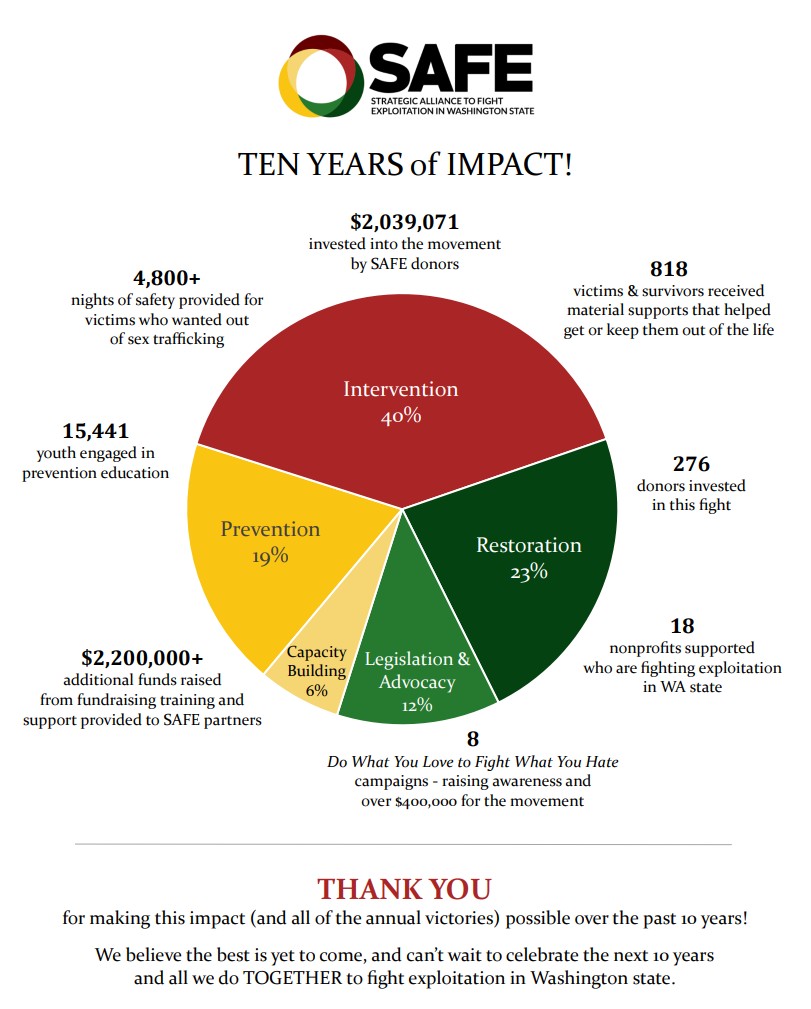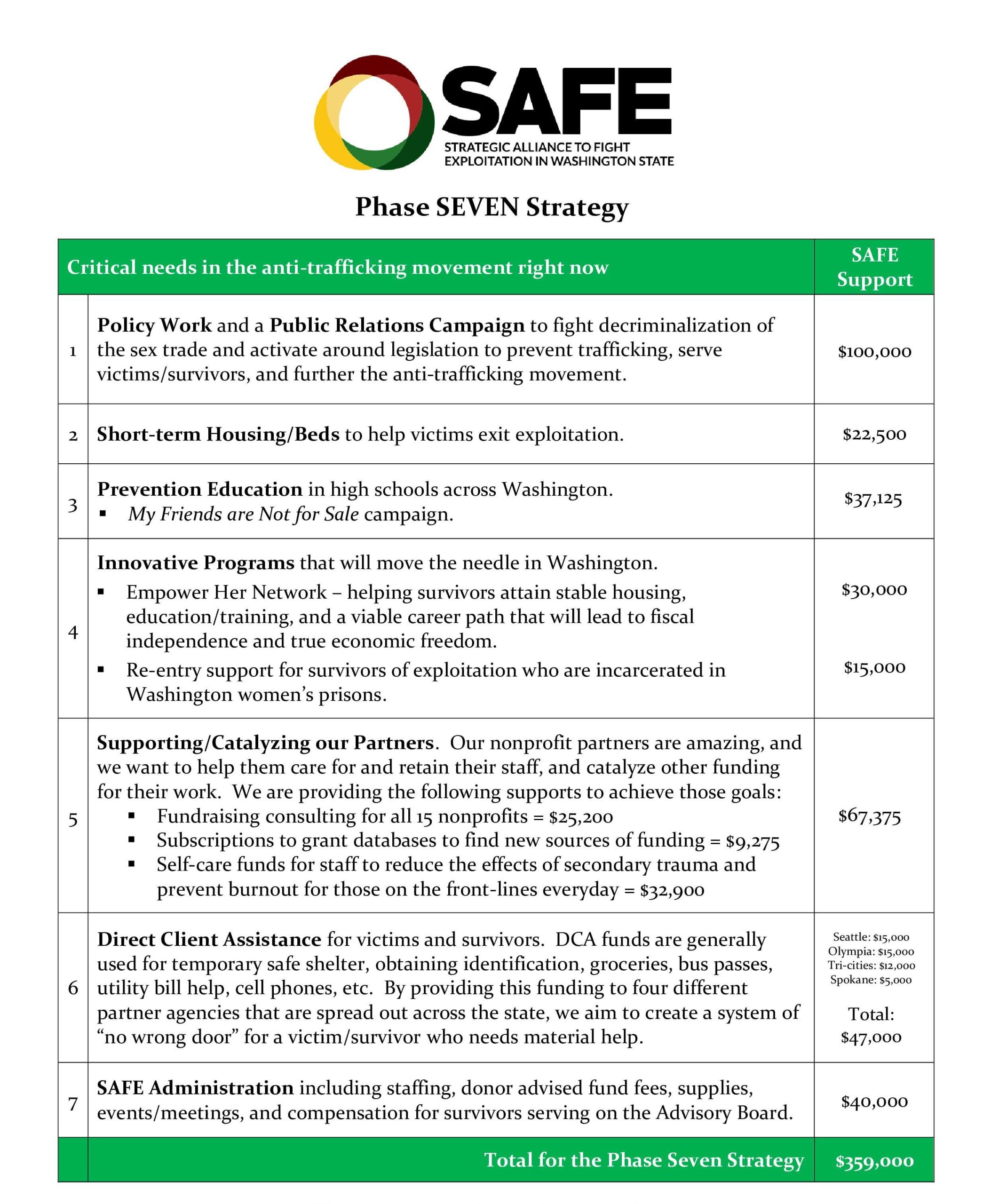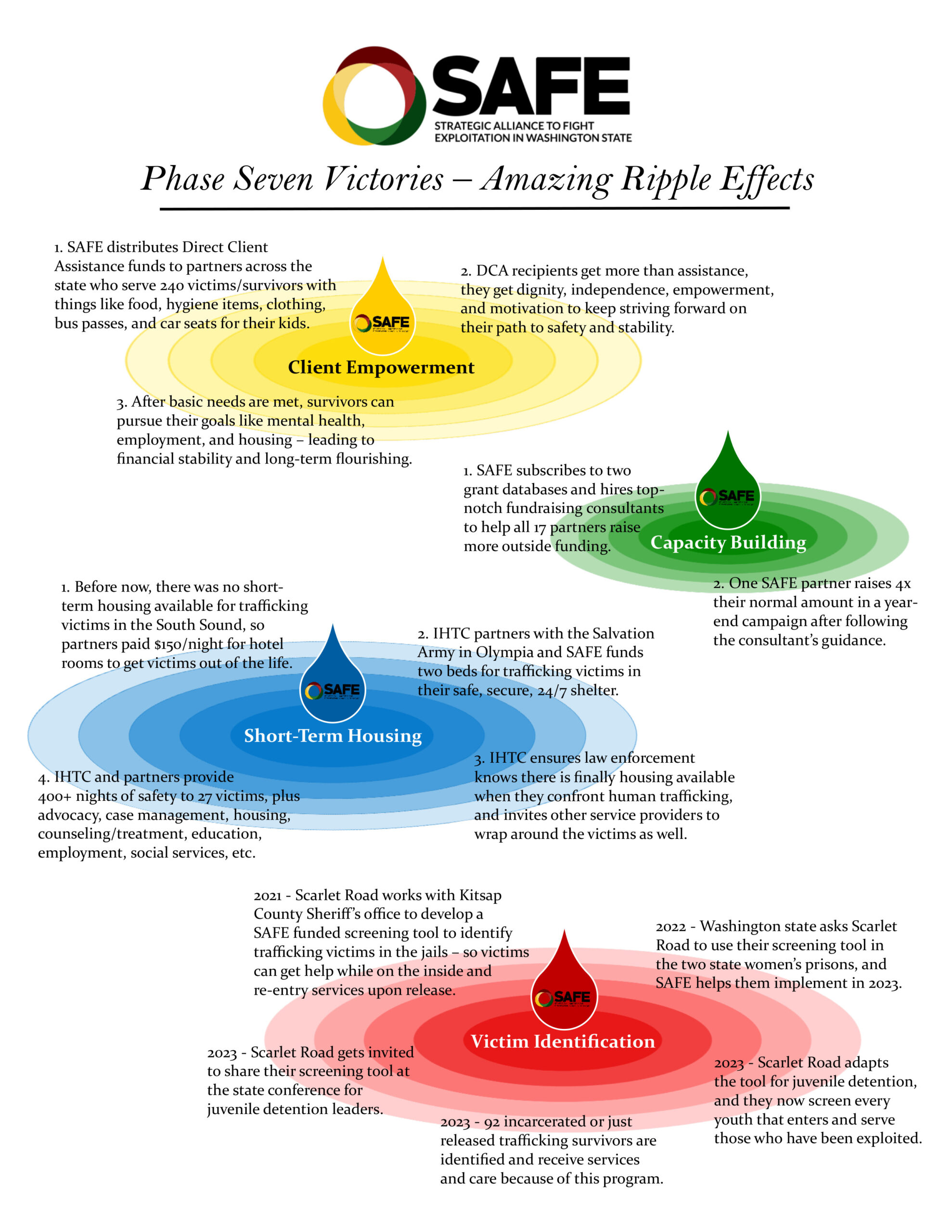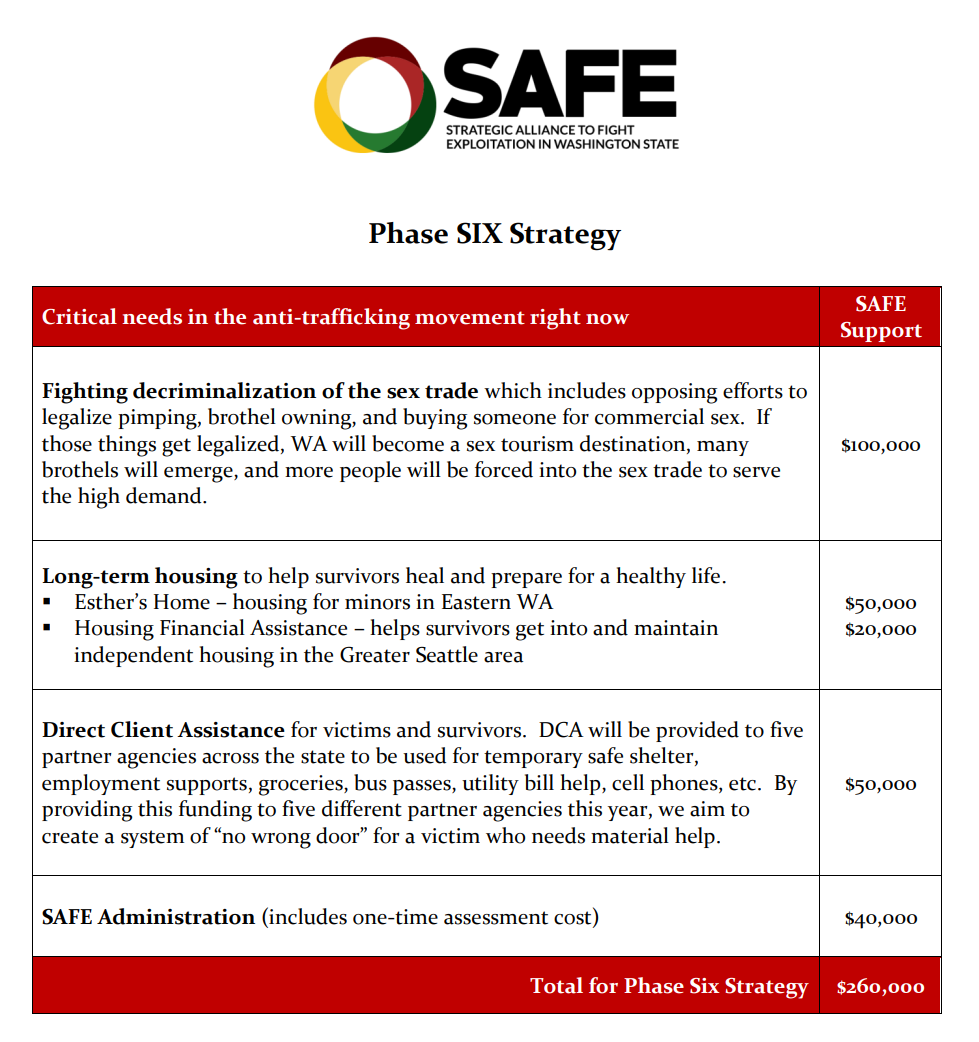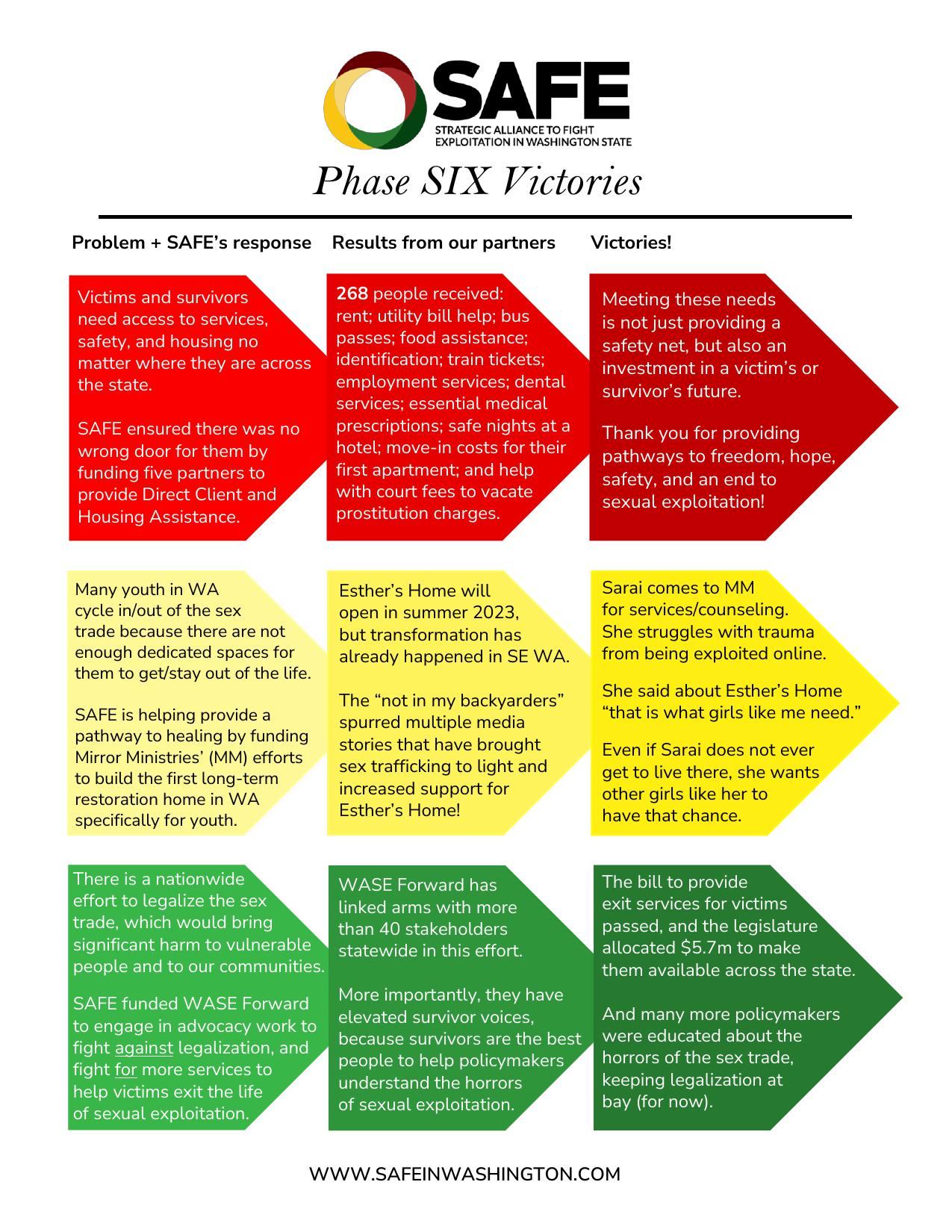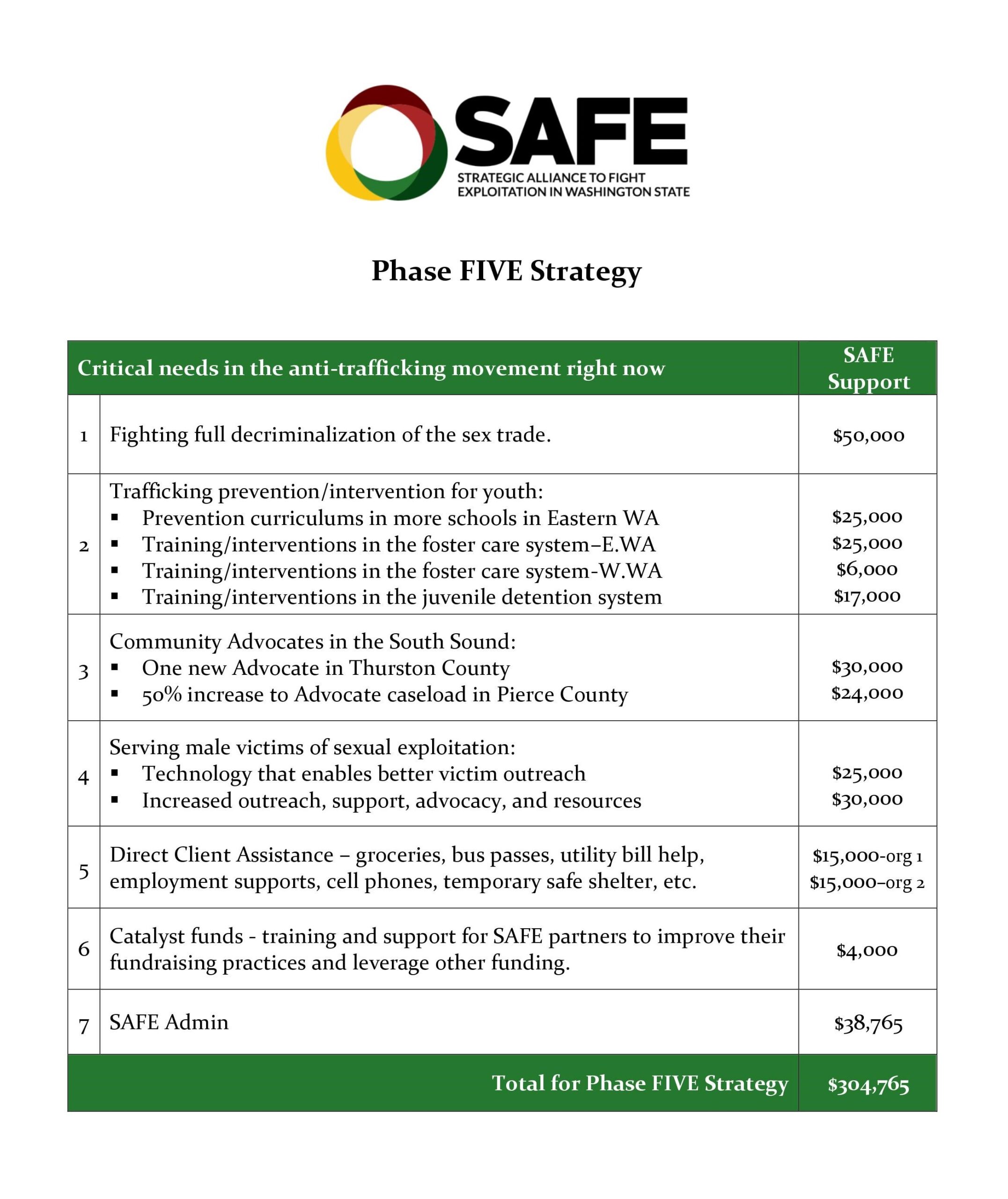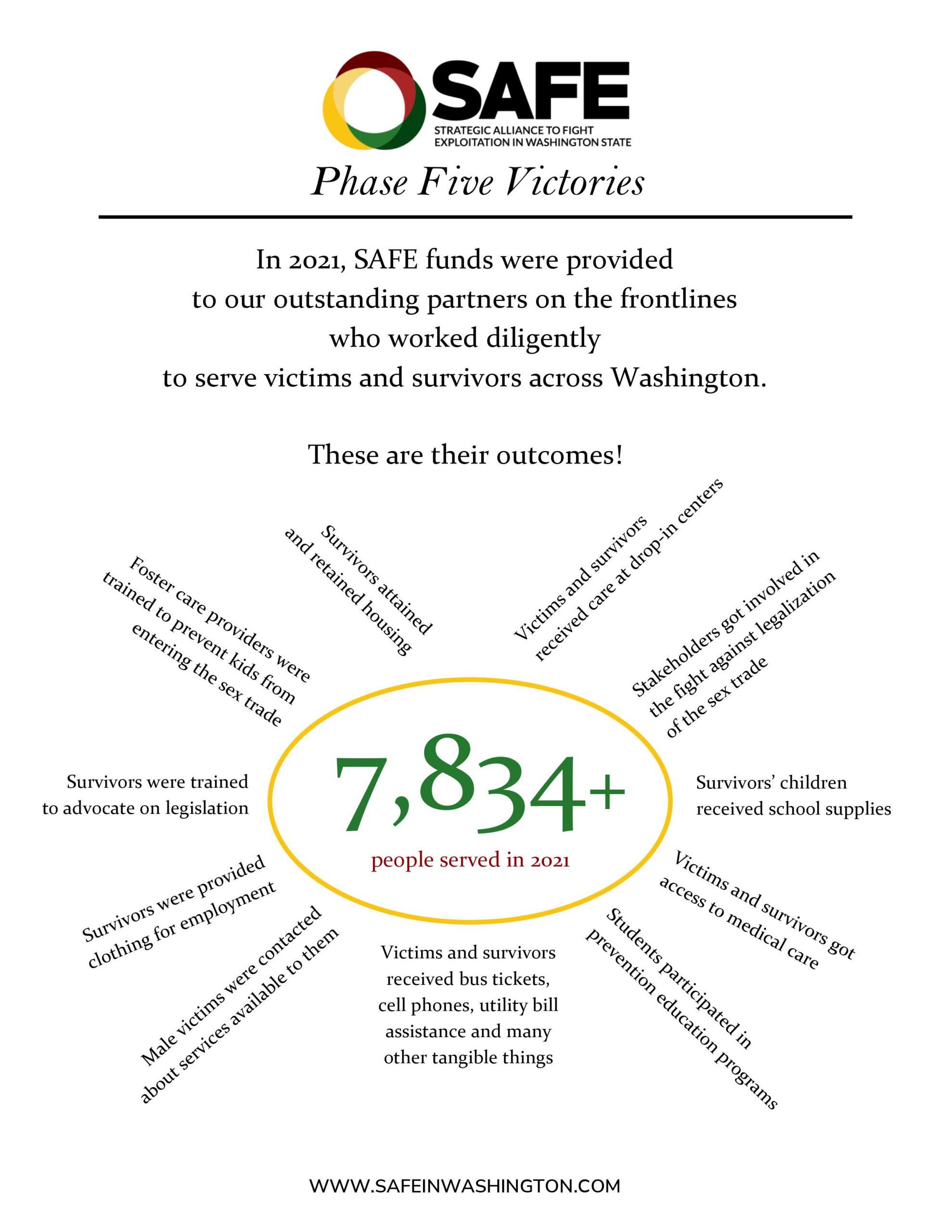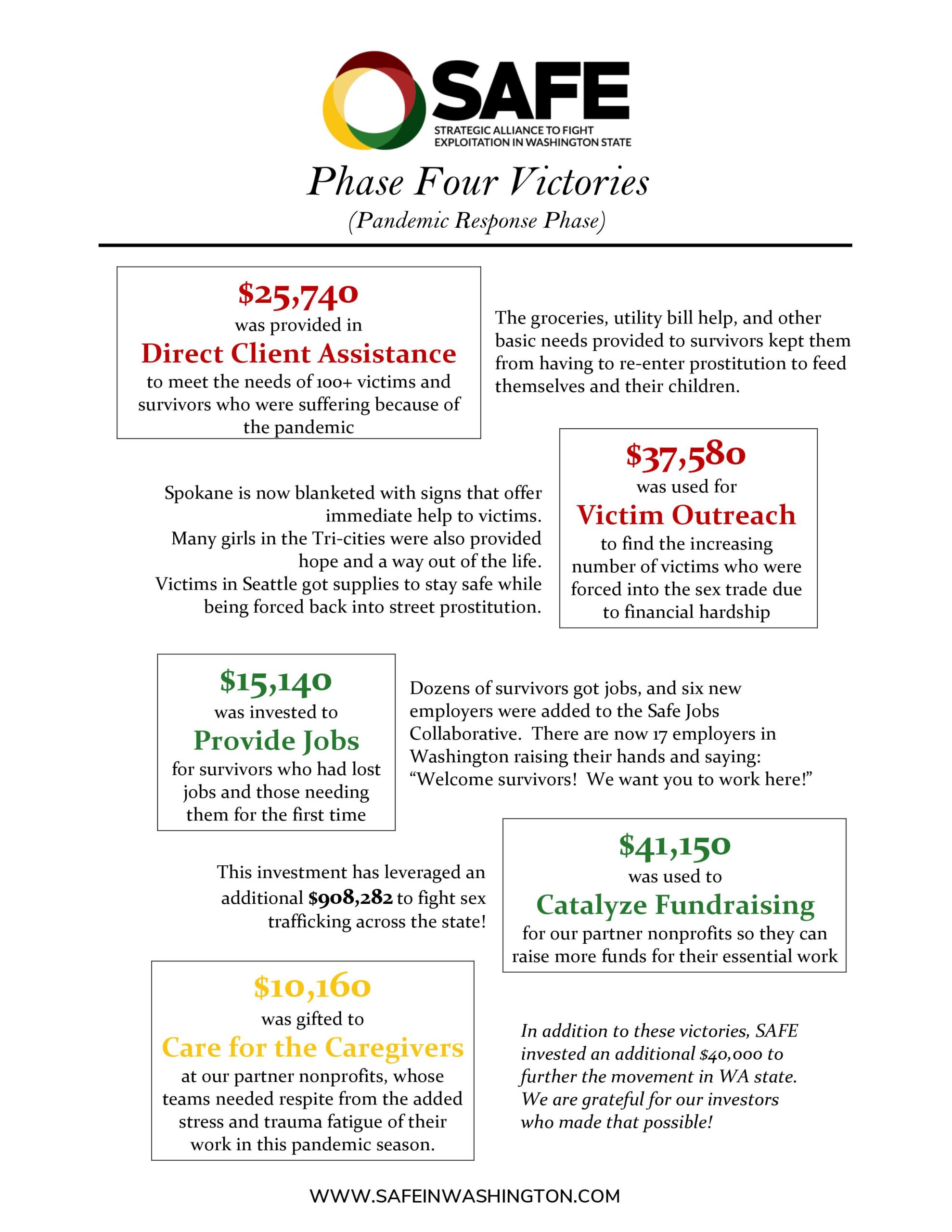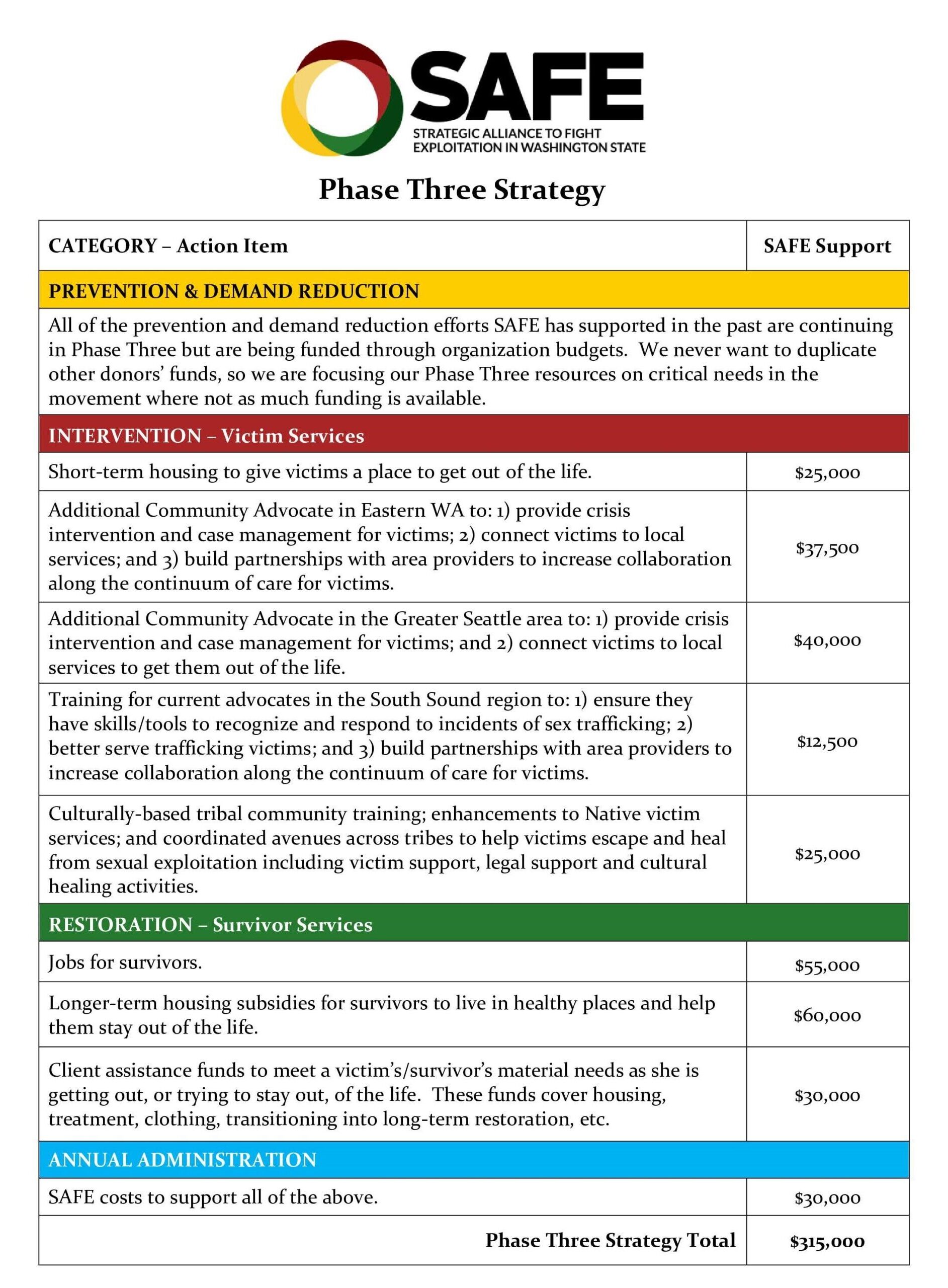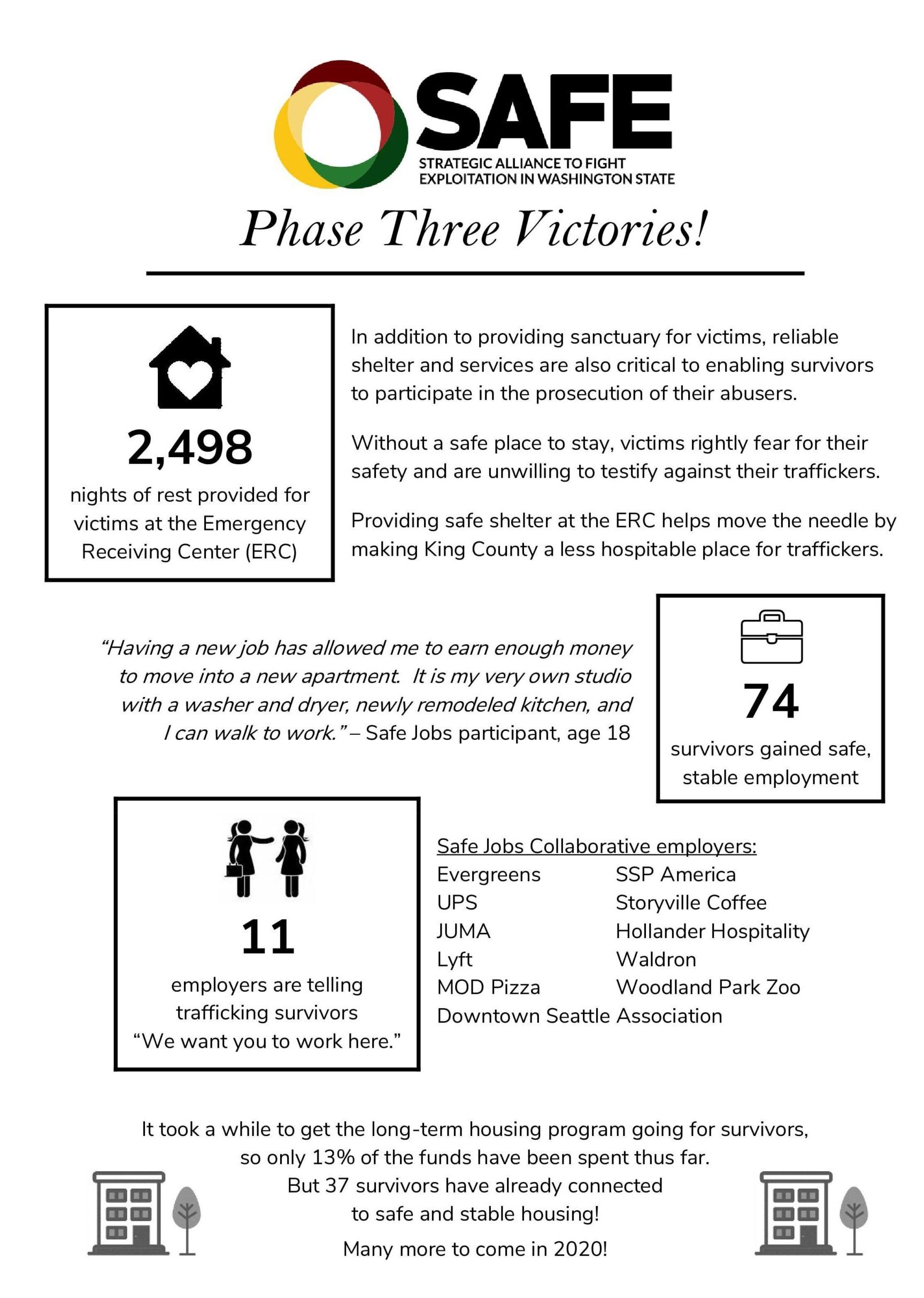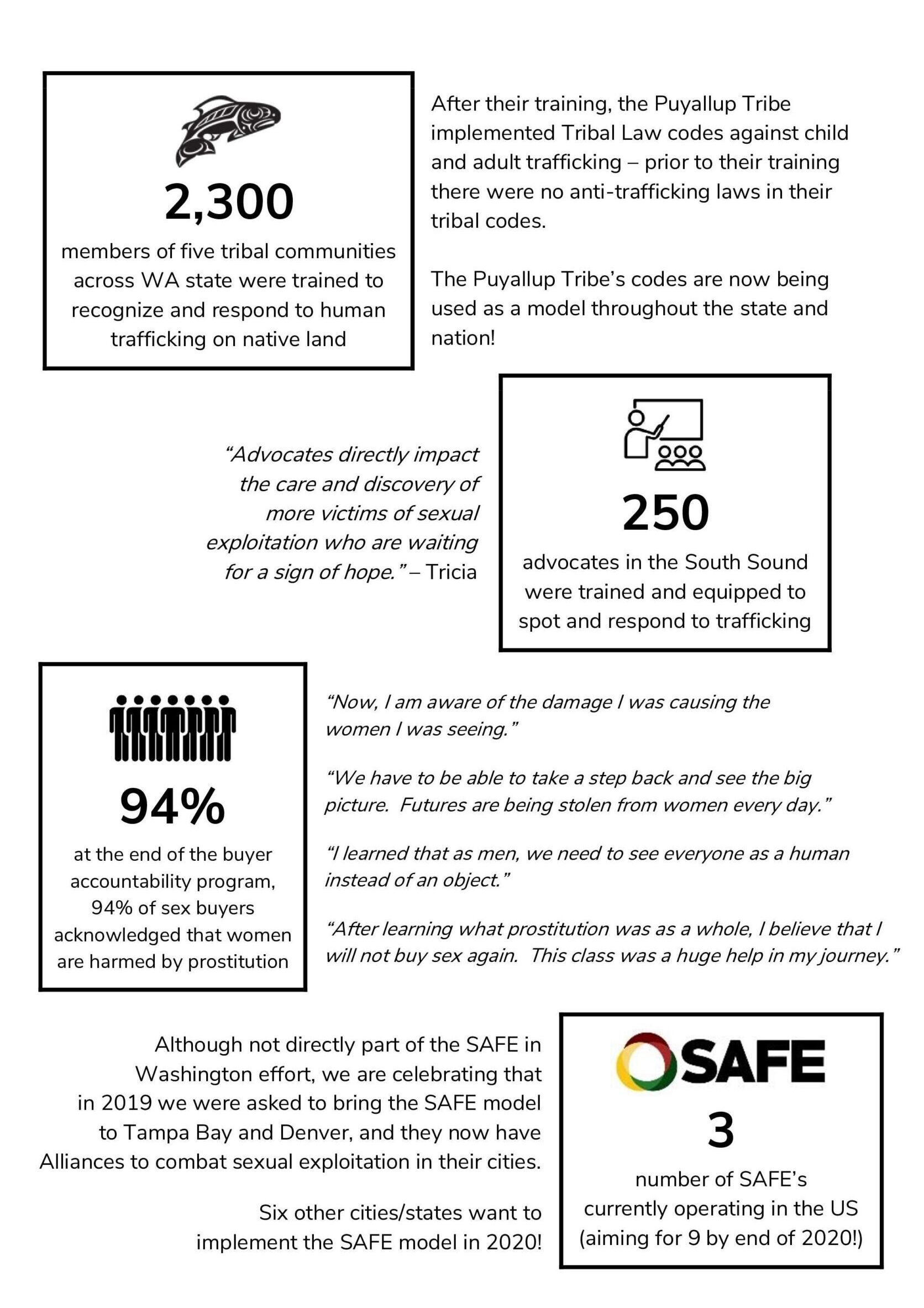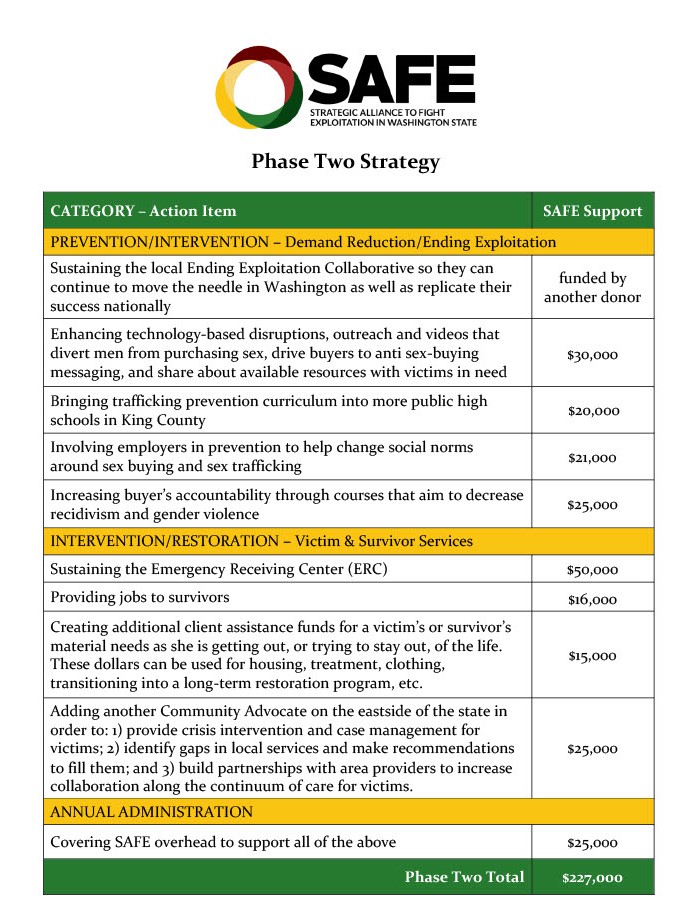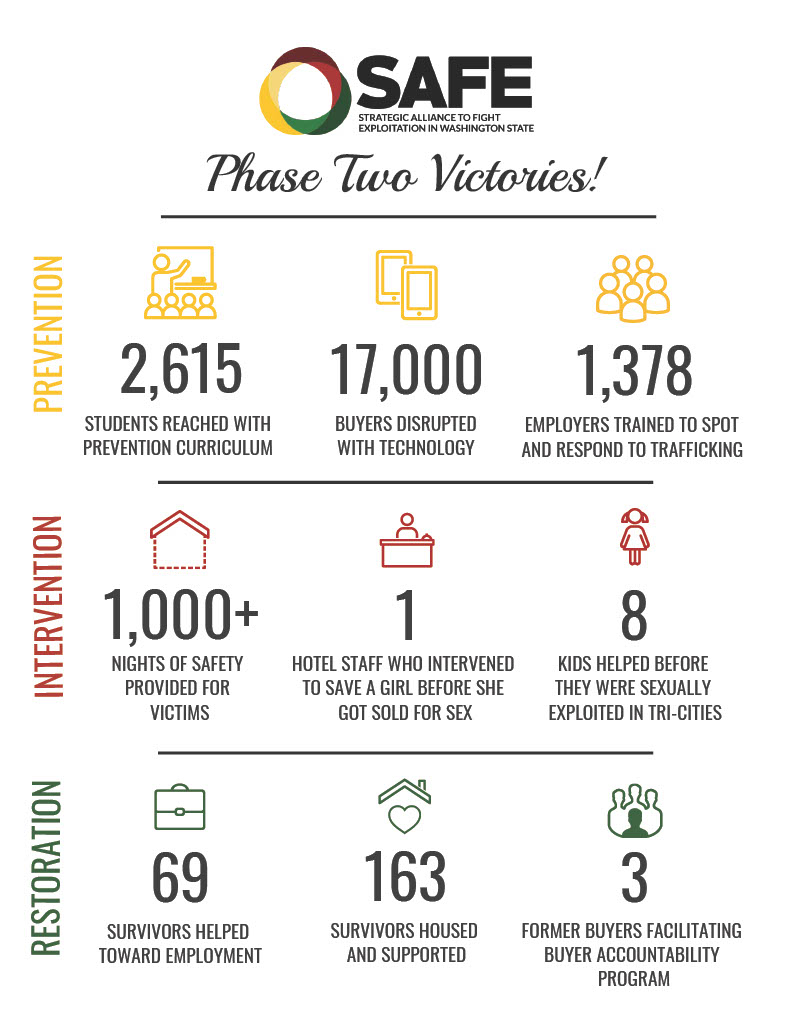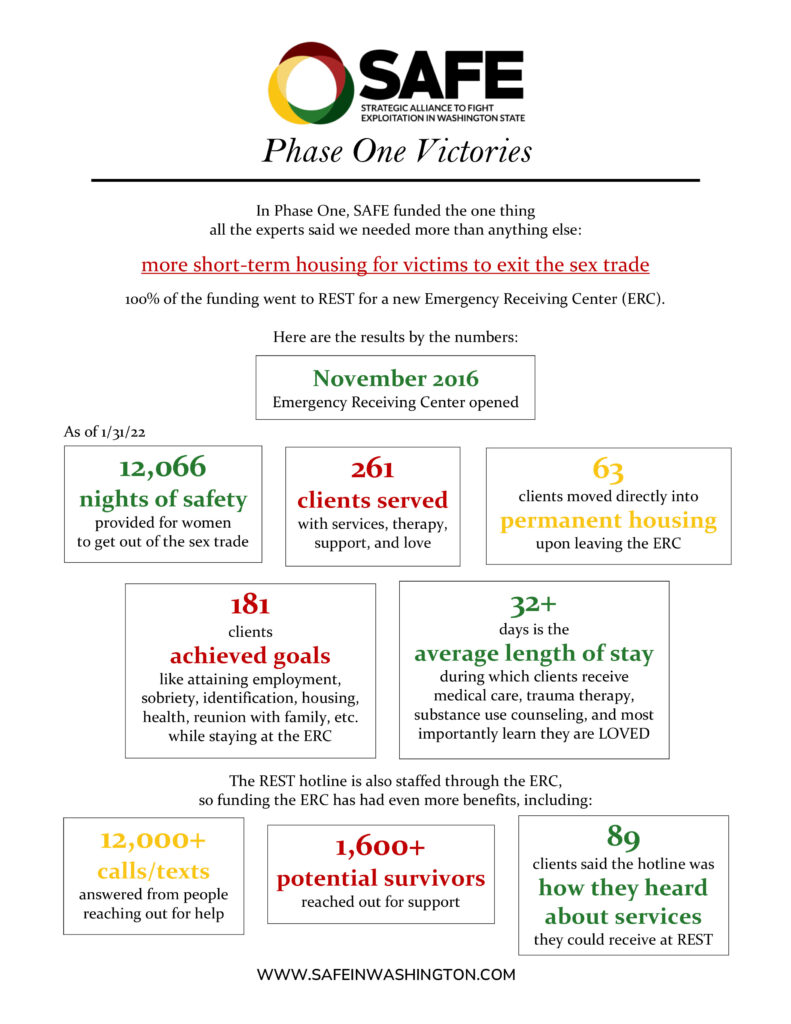
Strategy
SAFE’s strategy has three essential elements:
PREVENTION
Education and awareness to keep people from entering the sex industry
INTERVENTION
Avenues for those who are being exploited to exit the sex industry
RESTORATION
Multi-faceted, survivor-centered treatment to enable a healthy future
Phase 9 Strategy – invest to make an impact this year!
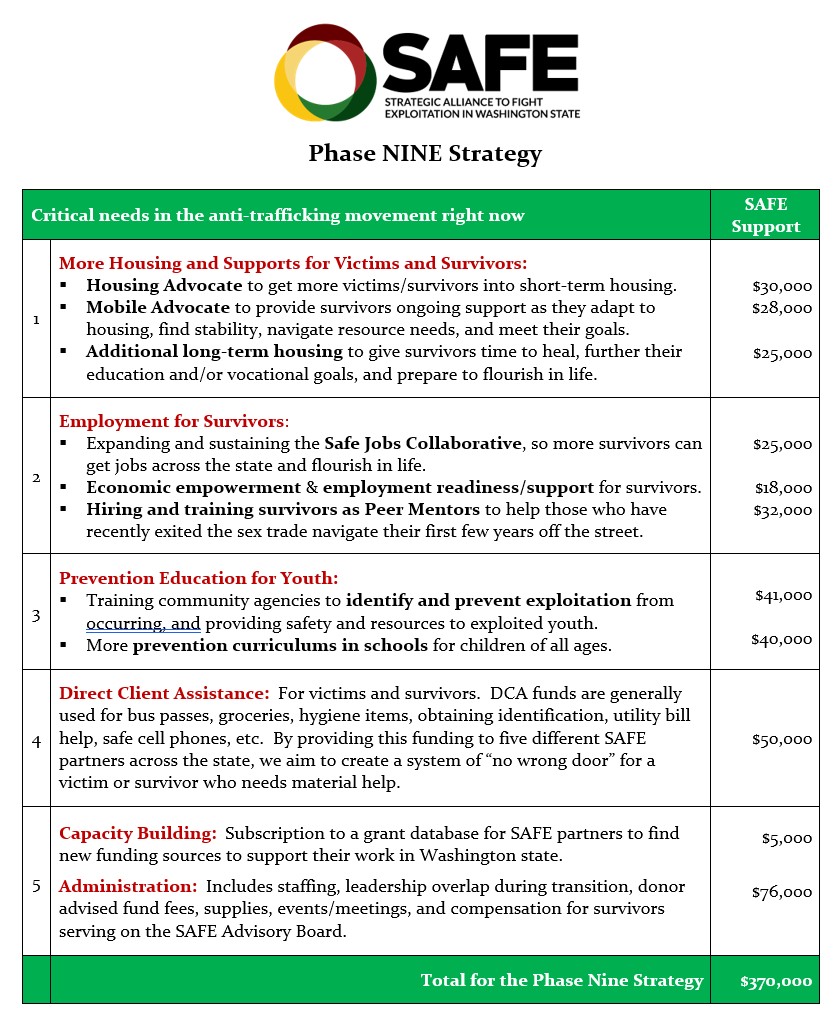
Phase 8 Strategy – completed!
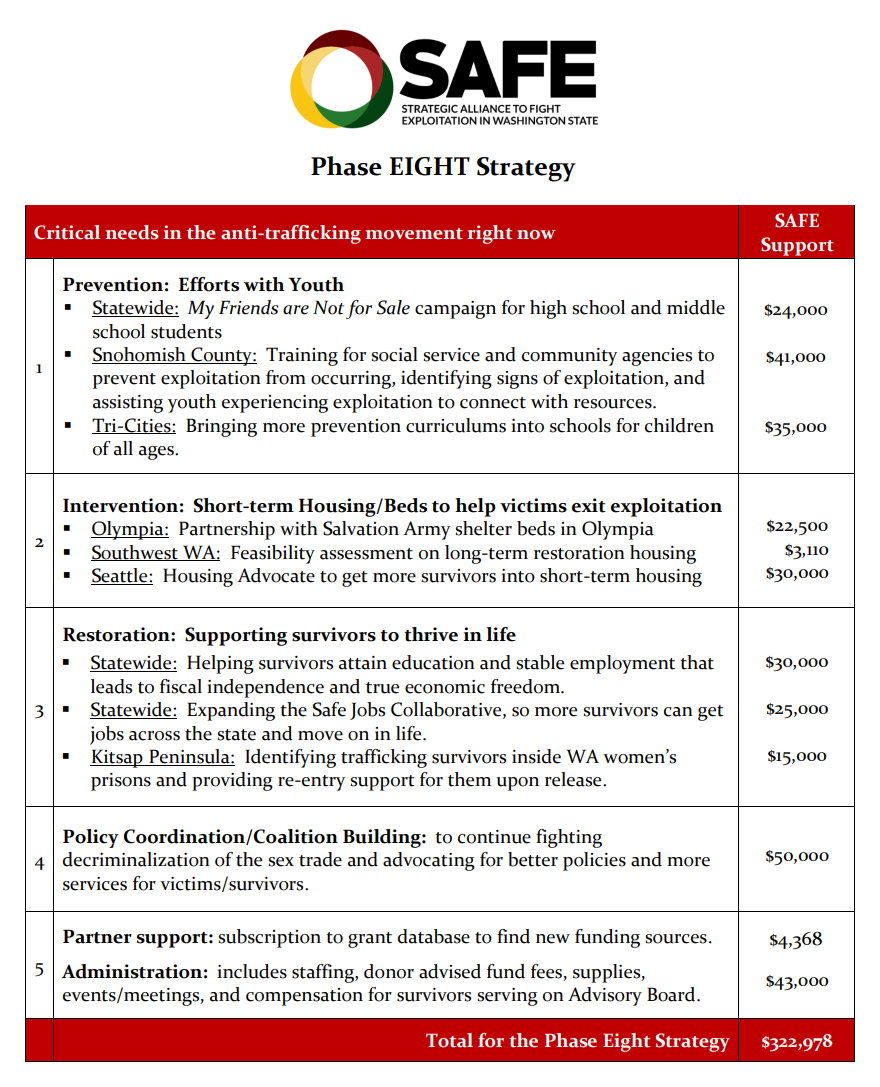
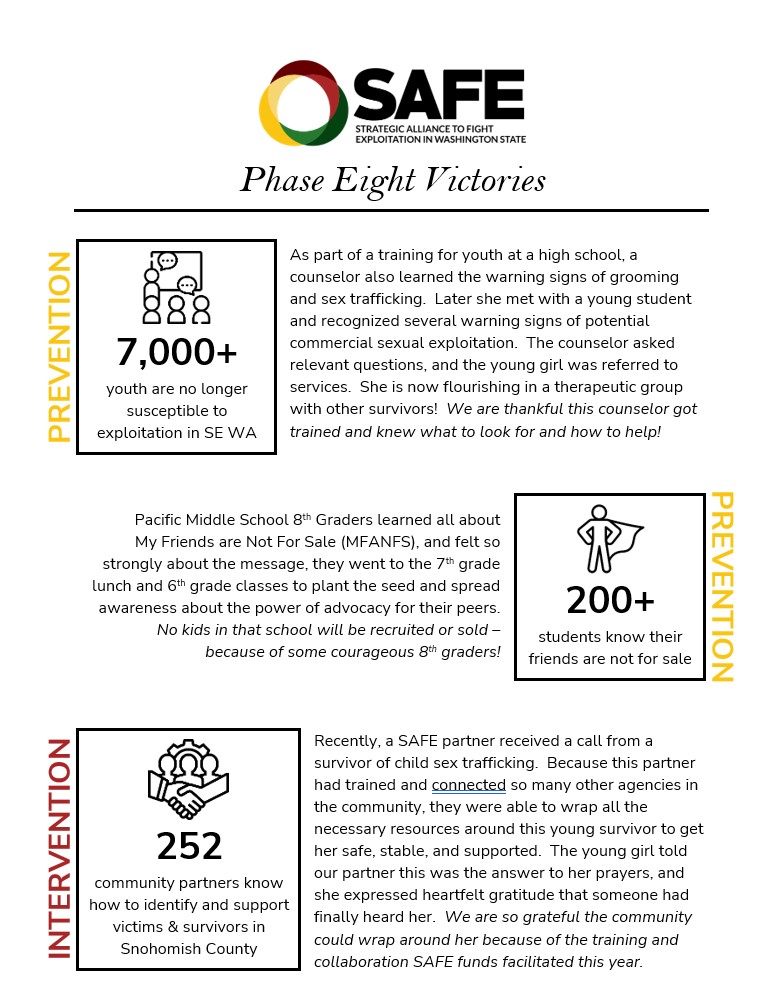
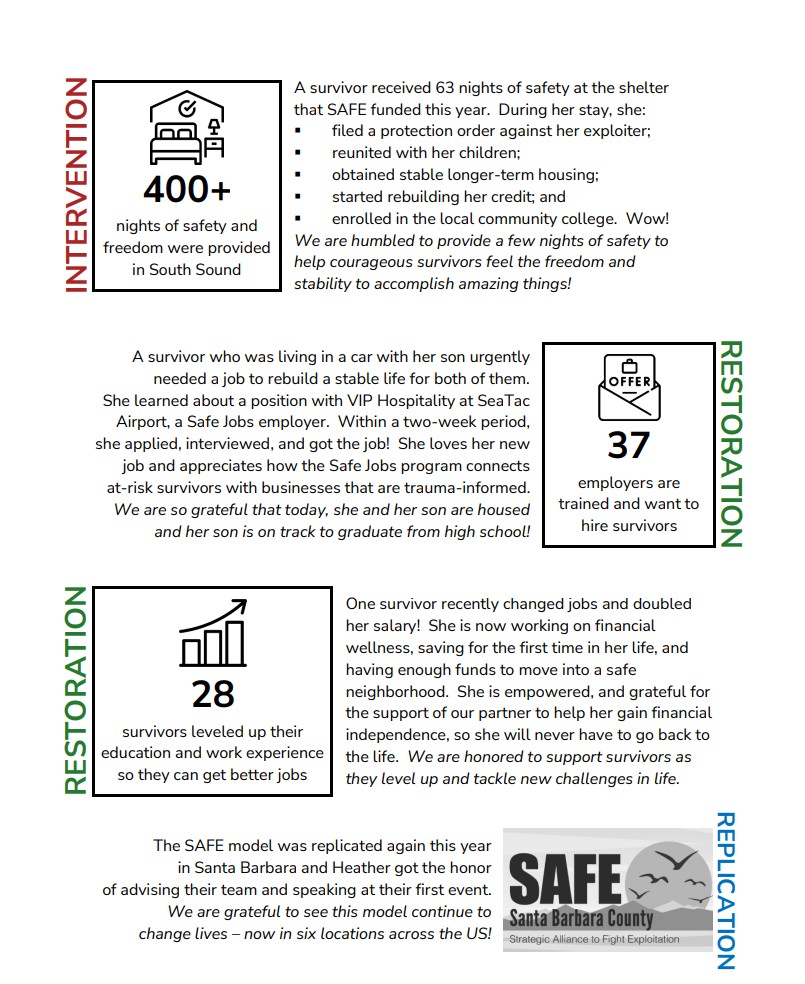
Phase 4 Strategy – COVID response 2020 – completed!
Phase Four Strategy
We were about to launch our exciting Phase Four strategy when the pandemic hit. We decided it was important to pivot Phase Four to meet the more immediate needs that were arising for victims and survivors of sexual exploitation across the state.
We quickly learned that many trafficking survivors who recently gained employment, had been working multiple part-time jobs and therefore were not eligible for unemployment. They needed funds for groceries and to care for their children so they weren’t forced to engage in “survival sex” to meet their basic needs. SAFE stepped in to meet those needs.
In addition, we learned that many youth who would normally find safety in school and extracurricular activities, were now facing being trafficked by family members because they were all sheltering at home together. SAFE stepped in to help keep drop-in centers open so these youth had a safe place to go.
We met other important needs in Phase Four as well, and stood by our partners across the state as they served the victims and survivors who don’t deserve to have their bodies exploited and lives ruined.
Phase 1 Strategy – completed!
Intervention
Because the need for intervention was so high in 2015, SAFE put all its funds in Phase One into an Emergency Receiving Center (ERC) – a 24/7 place to help victims get out of sexual exploitation. Many victims were able to come to the ERC and get healing, hope, and a pathway to a brighter future.
All SAFE grantees must be organizations that are:
SUSTAINABLE
Existing community of support
We fund organizations that already have a solid donor base and are not relying solely on SAFE for their program funding
COLLABORATIVE
Movement minded
We fund organizations that are thinking about the movement as a whole, not just their slice
TRUSTWORTHY
Sound financials
We fund organizations that can show good stewardship of resources
Long-term strategy
We fund organizations that are in it for the long haul, and have a vision for how to end commercial sexual exploitation
Committed to working with others
We fund organizations that have a proven track record of working with others toward common goals
Effective governance
We fund organizations with strong internal structure which makes them more outwardly effective


